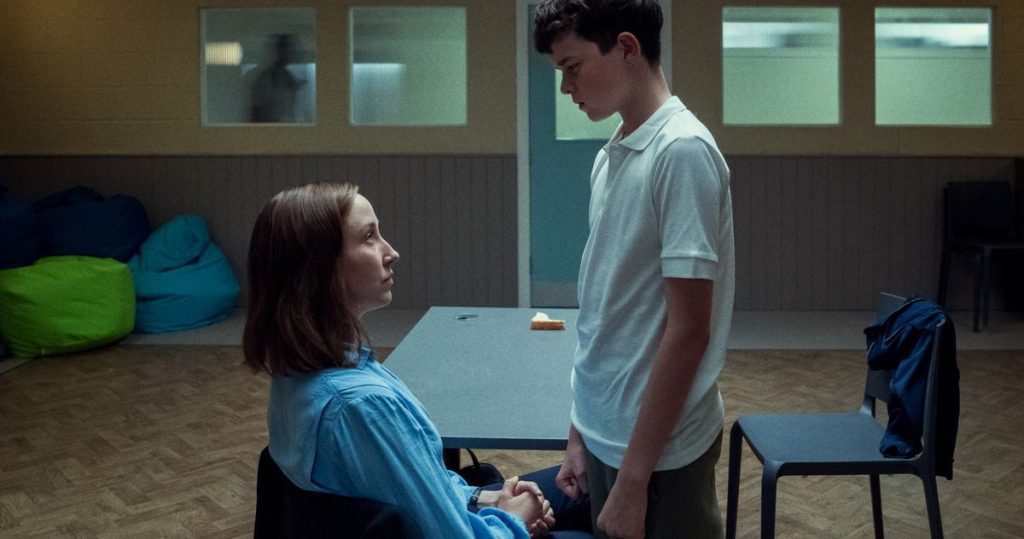The third episode of Adolescence offers the most in-depth look at the series’ themes of gender dynamics and male violence. Photo: Ben Blackall/Netflix
Warning, spoilers ahead for all four episodes of Adolescence, now available on Netflix.
Episode Insights
In Adolescence, a highly regarded limited series on Netflix centered on a teenage boy accused of murder, Detective Sergeant Misha Frank (Faye Marsay) shares her frustrations regarding the investigation. While visiting the school of accused murderer Jamie (played by Owen Cooper), she reflects on the imbalance of focus between the accused and the victim, Katie (Emilia Holliday).
Shifting Perspectives
Frank’s remark encapsulates a troubling truth: “The perpetrator always dominates the narrative,” she states, lamenting how much attention is paid to Jamie while Katie fades into obscurity. This theme underscores the series as it often prioritizes the male experience at the cost of exploring the victim’s humanity.
Exploring Gender Dynamics
Episode three, largely set in a psychiatric facility, dives deeper into Jamie’s psyche through a session with his court-appointed psychologist Briony Ariston (Erin Doherty). Their initially amiable exchange quickly reveals Jamie’s fluctuating emotions and erratic behavior, hinting at deeper issues related to male identity and aggression.
Complex Father-Son Relationships
The series places significant emphasis on Jamie’s relationship with his father, Eddie, played by co-creator Stephen Graham. Through their dynamic, viewers witness how familial pressure and expectations shape Jamie’s troubled identity. As Jamie candidly discusses his father’s emotional detachment, one can see the impact of shame and disappointment on his mental state, leading to emotional outbursts during sessions with Briony.
Acknowledging Victims
Amidst the examination of Jamie’s behavioral issues, the narrative falls short in elaborating on Katie’s character, reducing her to a mere backdrop in Jamie’s story. Though the title plays on the concept of adolescence, the missed opportunity to fully explore the impact on young female lives adds a layer of critique on the series’ storytelling choices.
Graham’s Commentary
Graham expressed his motivations for creating Adolescence, addressing the alarming trend of young boys engaging in violence against girls. With poignant reflection, he raises questions about societal factors contributing to this troubling behavior, highlighting the urgency of understanding these dynamics within contemporary narratives.



